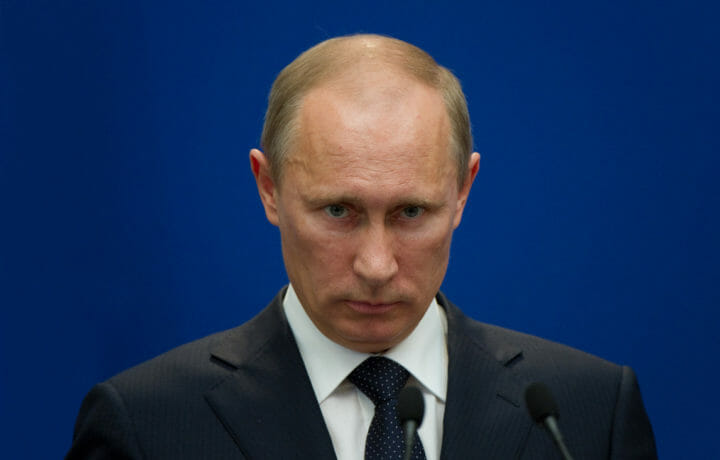For many years, China and Russia have been redrawing boundaries around the world by force. During their latest meeting, Russian President Vladimir Putin referred to Chinese ruler Xi Jinping as “dear friend”, further solidifying their countries relationship. During the meeting, Putin supported Beijing’s “legitimate position” on Taiwan and Xi supported Russian current calls for “security guarantees” and “assurances” from NATO, that it will not expand into the Ukraine. The Beijing and Moscow partnership is simple. Russia backs Chinese aggression and China backs Russian aggression.
Russian Belligerence
Russia divided Georgia in 2008, annexed Ukraine’s Crimea in 2014 and took the Donbas region. With 120,000 Russian soldiers on the border, Ukraine’s Ministry of Defense stated Thursday morning that Putin’s only options are all-out war or “creeping occupation.” Again, last month the Ukraine formally requested assistance from the U.S. As the alignment of allies continues, Russia sent nuclear-capable bombers on patrol over Belarus four times this past month.
In a Putin-Biden video call last week, Biden voiced concern about a buildup of Russian troops near Ukraine and warned that Russia would face “severe consequences” if Moscow attacked its neighbor. Putin denied plans of invasion and changed the course of the conversation by pushing Western leaders to assure no expansion of NATO weapons and troops in the Ukraine, calling this activity a “red line” for Moscow. On Friday Russia published draft security demands for NATO, denying membership to Ukraine and other former Soviet countries. Additionally, Russia demanded an end to all NATO military drills and deployments in Central and Eastern Europe, calling for a ban on U.S. and Russian warships and aircraft in striking distance to each other’s territory.
Over the weekend, German Defense Minister Christine Lambrecht commenting on the list of demands stated Russia cannot “dictate” terms to NATO. With Russian-occupied Crimea only 200 miles from Romania, their military attaché in Washington, D.C., stated a Russian invasion of Ukraine is a national security concern for both Romania and NATO. “If the U.S. and NATO are not careful, the Black Sea will be a Russian lake.” On Sunday, Lithuania’s Defense Minister accused Russia of working to drive a wedge into the NATO alliance. On 16 of December, in a meeting between NATO Secretary General and the Ukrainian President, Secretary Stoltenberg stated, “We call on Russia to return to diplomacy, to de-escalate and to respect Ukraine’s sovereignty and territorial integrity.”
Chinese Antagonism
Across the continent, Beijing is still gobbling up islands and reefs in the South China Sea and openly patrolling waters from Taiwan to the Philippines. Chinese troops are deep into Indian-controlled territory in the Himalayas and are infringing on other locations like Bhutan and Nepal, deploying long-range strategic bombers to the region last month. Beijing has successfully coerced Japan to give up the Senkaku Islands in the East China Sea. In Africa, China’s political and economic expansion is propelled by its desire to obtain new sources of raw materials and energy for its economic growth while developing new markets for its manufactured goods.
In March, China’s top diplomat Yang Jiechi boldly lectured Secretary of State Antony Blinken that the United States could no longer talk to China “from a position of strength.” Last week saw the continuation of live fire exercise in the south China Sea near Hainan and the Beibu Gulf between China and Vietnam and Chinese accusations of U.S. “saber-rattling and making provocations.”
Recent “Response”
Last week, members of the U.S. Congress continued to urge Biden to answer the November request for additional military assistance from the Ukraine. White House press secretary Jen Psaki said Washington, “…will not compromise the key principles on which European security is built, including that all countries have the right to decide their own future and foreign policy, free from outside interference.,” With Moscow’s new security demands, opportunities for compromise on the Ukraine are growing ever elusive.
With regard to China, during last week’s trip to Asia, U.S. Secretary of State Antony Blinken stated that there’s concern among countries in the region “about Beijing’s aggressive actions” and that the U.S. is “determined to ensure freedom of navigation in the South China Sea.”
Provocative Russia and China activities are drawing criticism from around the world, leaving the U.S. with few alternatives. According to the Air Force Times, the U.S. is continuing to pursue diplomacy, but is holding back on military aid.




